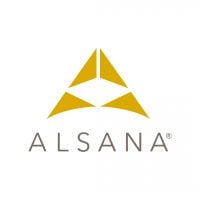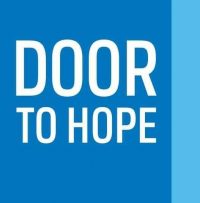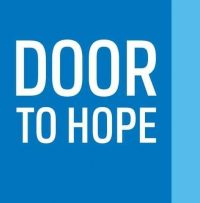Beacon House - Pine Avenue
Drug Rehab Center in Pacific Grove, California
Beacon House - Pine Avenue is a state-accredited, 22-bed treatment facility in Pacific Grove, CA providing medical, psychological, and spiritual care for those seeking sobriety from substance abuse and mental health issues, with detoxification services, inpatient rehabilitation, dual-diagnosis treatment, and traditional outpatient options available.
Multiple patients have reported Beacon House - Pine Avenue as permanently closed.
Research other rehabs in Pacific Grove, California, or get help finding an open facility.
About Beacon House - Pine Avenue in California
Beacon House - Pine Avenue is a reputable drug treatment facility located in Pacific Grove, California. This facility holds the prestigious accreditation of being State License Certified, ensuring that it meets the highest standards of quality and professionalism. With a capacity of 22 beds, Beacon House offers comprehensive addiction and substance abuse treatment services for individuals suffering from Alcoholism, Opioid Addiction, Dual Diagnosis, and Drug Addiction. They provide a range of care options including Detox, Drug Rehab, Dual-Diagnosis, Inpatient, Intensive Outpatient, and Outpatient Levels of Care. Their commitment to excellence and their focus on treating the whole person sets them apart as a reliable and effective center for recovery.
Beacon House - Pine Avenue provides a multitude of services to support individuals in their journey towards sobriety. Their treatment programs are specifically designed to address various addiction issues such as Alcoholism, Opioid Addiction, Dual Diagnosis, and Drug Addiction. Through their Detox and Drug Rehab programs, individuals can safely and comfortably go through the process of withdrawal under medical supervision. The facility also offers Dual-Diagnosis treatment for individuals who are struggling with co-occurring mental health disorders. Beacon House provides a continuum of care with options for Inpatient, Intensive Outpatient, and Outpatient levels, allowing individuals to find the level of care that best suits their needs. This comprehensive approach ensures that individuals receive the necessary support and guidance to overcome addiction and achieve lasting recovery.
Genders
Ages
Modality
Additional
Accreditations
State License
Conditions and Issues Treated
Opioid addiction starts when a person becomes addicted to legal or illegal opioids. The addiction can happen quickly, in just a matter of days. Opioid withdrawal can be extremely uncomfortable and lead the user to continue to use even if they want to quit. Stopping using an opioid requires medical observation. Sometimes inpatient treatment with a medically supervised detox is necessary for managing the withdrawal process while learning lasting tools for maintaining recovery. Medications may be used in some cases of opioid addiction.
Opioid addiction is one of California‘s most prominent forms of addiction. It’s treated by detoxifying the body so that the chemicals from the medications no longer impact them and by therapies to correct behavior and target the root of the problem.
Recovery is not simply about stopping drug use. Recovery is working with addiction while recovering mental health issues that are fueling the addiction in the first place.
Levels of Care Offered
This center offers a variety of custom treatment tailored to individual recovery. Currently available are Detox, Drug Rehab, Dual-Diagnosis, Inpatient, Intensive Outpatient, Outpatient, with additional therapies available as listed below.
Detox is the first step of rehab. It involves giving a person time to get the toxins out of their body. During detox, the patient gets ill and they will often start using again to get rid of these unpleasant feelings. That’s why it’s so important to have a Pacific Grove medical professional at Beacon House - Pine Avenue present. A California medical professional will make sure patients don’t start using during detox. They will also provide medication to ease their symptoms and coach them through on a mental level.
Individuals who are suffering from severe addiction or have a high risk for dangerous health concerns are often recommended to receive inpatient treatment.
Choosing to enter an inpatient treatment program is beneficial for people who are suffering from severe addiction, or who have a high risk for dangerous health concerns.
Inpatient treatment is beneficial for:
- People who have a history of severe withdrawal.
- People who have attempted to overcome addiction on their own without success.
- People who have a history of relapse, or have recently relapsed.
- People at risk for drug overdose or withdrawal-related complications.
- People with medical conditions that are worsened by drug or alcohol use.
Addicts who need help with their addiction can enroll in an intensive outpatient program (IOP). But the patient won’t live there during treatment.
IOP involves patients visiting a medical office building regularly for therapy and other services while continuing to live their lives.
IOP is a step up from drug or alcohol detox, but it’s still a phase of recovery, not the end goal. Patients in need of IOP have many options for rehab and treatment.
Outpatient treatment is considered the lower intensity level of addiction treatment. It’s ideal for early phase addiction or lower intensity addictions. It may include weekly sessions instead of daily. It may include weekly sessions instead of daily. Peer group support, 12-step programs, and individual counseling may still be involved but at a lesser frequency than an intensive outpatient program. It is a good choice for someone who doesn’t need to go through a medically supervised detox and who has a supportive home environment. It requires motivation and dedication to commit to the program without constant monitoring.
Therapies & Programs
Individual therapy involves one-on-one sessions between the patient and therapist. It provides patients with a safe environment to openly discuss personal and sensitive issues with the therapist. They find the therapist as someone they can trust. Individual therapy aims to identify the core issues that would have led the patient to substance abuse and address them effectively. The therapist can develop patient-specific customized solutions through individual therapy, which aids speedier recovery.
Groups typically involve meetings with other recovering addicts who can relate to one another’s experiences. They might meet in person or online and typically focus on the process of staying sober rather than overcoming a specific addiction.
In these groups managed by Beacon House - Pine Avenue, addicts can build a sense of community and develop strong emotional connections with others who understand what they are going through. These beneficial relationships can help addicts overcome their cravings and prevent relapse at any point during the recovery process.
In general, trauma therapy is a clinical process that helps individuals deal with mental stress often caused by traumatic events. The therapist helps the person identify, understand, and work through the problem. This is done with the help of talking about it in group or one-on-one counseling sessions. Therapists use relaxation, role-playing, art, and music to help the person open up about what is bothering them.
There are many different types of trauma therapists, such as psychiatric nurses and counselors. Not everyone is a good candidate for this type of therapy; it is generally reserved for people who have recently experienced a traumatic event and struggle to get over it. It is often done for children, teenage victims of sexual assault, and war veterans.
There is hope for people who are addicted to drugs and alcohol. Cognitive Behavioral Therapy (CBT) is the solution. CBT focuses on the underlying thoughts and behaviors that caused the addiction problem in the first place and may cause a relapse. This type of psychotherapy addresses negative feelings common in substance abuse disorders. It helps to change them by restructuring thought patterns. It’s about removing negative thoughts and providing long-term benefits while promoting self-awareness, self-control, and healthy ways to respond to negative thoughts. These sessions can be done by themselves or as part of combination therapy.
Eye Movement Desensitization and Reprocessing (EMDR) is a treatment method that can help reduce the impact of traumatic memories on emotions. It does this by having patients follow a bar of light or watch their therapist’s finger move back and forth, which mimics the eye movements of REM sleep.
This allows the brain to reprocess the memories, reducing their impact. EMDR therapy is different from traditional therapies in that it addresses the root cause of substance abuse in many patients. This is done by combining EMDR therapy with behavioral therapies. This treatment option offered by Beacon House - Pine Avenue can help patients who turn to drugs to escape painful memories.
Patient Experience
Experiential Therapy at Beacon House - Pine Avenue
Experiential Therapy teaches people how to think differently about their lives and change their emotions by changing their behavior. This type of treatment is accomplished with various activities that may involve acting, props, arts and crafts, animal care, or other tools that may be effective.
This therapy aims for patients to release suppressed thoughts that cause bad feelings and drug addiction. Role-playing, arts and crafts, music, animal care, rock climbing, etc., are some of the activities used in this therapy. Gradually an individual will feel calmer and more loving which will change their perception positively. In addition to treating drug addiction, experiential therapy is beneficial for different behavioral and eating disorders.
Payment Options Accepted
For specific insurance or payment methods please contact us.
Is your insurance accepted?
Ask an expert, call (888) 674-0062
We Care Children Associated Centers
Discover treatment facilities under the same provider.
- We Care Services for Children - Kirker Pass Road in Concord, CA
- We Care Services for Children - Civic Court in Concord, CA
- Beacon House - Lighthouse Avenue in Pacific Grove, CA
Learn More About We Care Children Centers
Additional Details
Specifics, location, and helpful extra information.
Pacific Grove, California 93950 Phone Number(866) 421-6156 Meta DetailsUpdated November 25, 2023
Staff Verified
Beacon House - Pine Avenue Patient Reviews
There are no reviews yet. Be the first one to write one.
Pacific Grove, California Addiction Information
More than 3 million of California's citizens are addicted to illegal drugs. Almost 800,000 people use hard drugs, almost 5 million use marijuana, and another 2.1 million abuse alcohol every year. Other substance abuse issues such as binge drinking and teen drug use are also common. Many illegal drugs such as cocaine, heroin, methamphetamine, and marijuana are smuggled into the state from Mexico.
There are 9,000 people addicted to drugs in Pacific Grove, California. There are 22 drug rehab centers in the community. The most commonly abused drugs are marijuana, methamphetamine, and cocaine. The average cost of drug rehab in Pacific Grove is $14,875. Some of the most common types of treatment include inpatient treatment, outpatient treatment, and residential treatment.
Treatment in Nearby Cities
- Chula Vista, CA (388.9 mi.)
- Victorville, CA (297.2 mi.)
- Calabasas, CA (251.2 mi.)
- Lemon Grove, CA (385.9 mi.)
- Redlands, CA (320.5 mi.)
Centers near Beacon House - Pine Avenue
The facility name, logo and brand are the property and registered trademarks of Beacon House - Pine Avenue, and are being used for identification and informational purposes only. Use of these names, logos and brands shall not imply endorsement. RehabNow.org is not affiliated with or sponsored by Beacon House - Pine Avenue.







